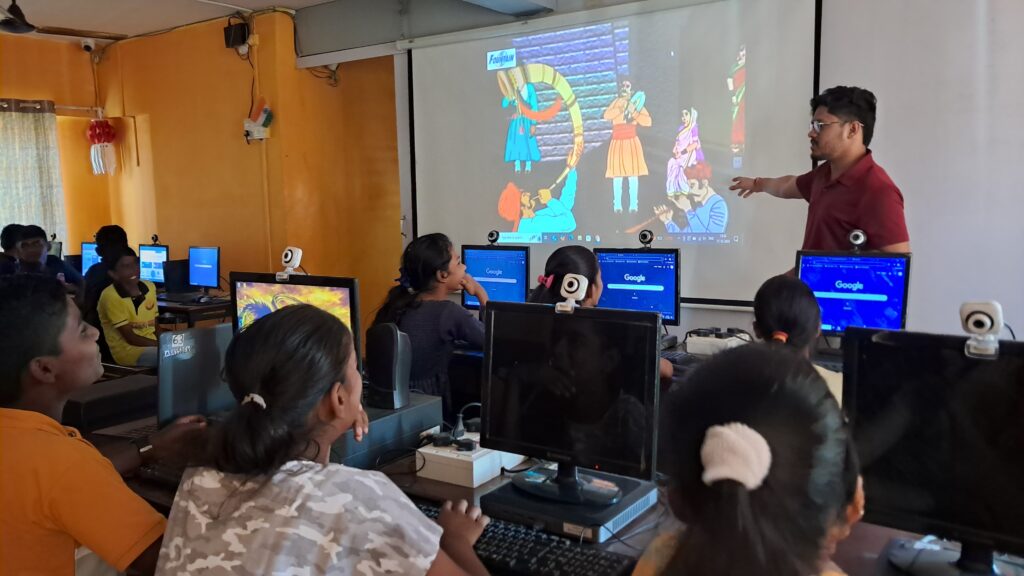Did you know that in India, around 22.66 lakh children with special needs make up just 0.89% of the total student enrollment? It’s a small number, but each of these children represents a unique story of resilience and potential. Sadly, many of them still face roadblocks when it comes to receiving the education they deserve. Isn’t education everybody’s birthright?
Inclusivity in schools isn’t just an ideal, it’s a necessity to unlock brighter futures for these kids. You must have heard about community microschools, right? Well, you are going to know more about it here especially focusing on how these types of education setups help kids with special needs!
What Are Community Microschools?
Community microschools are small, localized learning environments made to provide personalized education. Unlike traditional schools, microschools focus on individual learning needs rather than a generalised approach. With small class sizes and creative teaching methods, these schools are uniquely designed to address the challenges faced by students with special needs.
What are the challenges faced by students with special needs in traditional schools?
Traditional schools often struggle to provide proper support for students with special needs due to various challenges. Common ones include:
1. Lack of Individual Attention
- Large class sizes limit personalized interactions.
- Students with special needs may not receive the instructions they require.
- This can lead to frustration, gaps in understanding, and a decline in confidence.
2. Inadequate Training for Teachers
- Many teachers lack specialized training in special education.
- Educators may struggle to identify and address the needs of students with special needs.
- This results in ineffective interventions and academic challenges for these students.
3. Limited Access to Therapies and Accommodations
- Essential services like speech therapy or occupational therapy are often unavailable or insufficient.
- Modified lesson plans and assistive technologies are not consistently implemented.
- Students may need to travel outside school for additional support, adding logistical challenges.
4. Social Isolation and Bullying
- Students with special needs often face social exclusion due to their differences.
- Bullying can negatively impact their mental health and self-esteem.
- Limited opportunities to form friendships hinder their social development.
5. Pressure of Standardized Testing
- Standard exams do not take care about individual learning needs or abilities.
- These tests create unnecessary stress and fail to provide a fair assessment of a student’s potential.
- The emphasis on scores often ignores the need for adaptive teaching methods.
6. Stigma and Lack of Awareness
- Societal biases and misconceptions about special needs conditions persist.
- Students may be unfairly labeled as “difficult” or “slow.”
- A lack of awareness among classmates and teachers increase feelings of exclusion.
Top ways community microschools help students with special needs
Are you also stressed out due to these challenges? No worries- Community microschools handle these issues by creating an inclusive and adaptive learning environment. Here’s how:
1. Personalized Learning Plans
- Community microschools design Individualized Education Plans (IEPs) designed specifically to each student’s abilities and challenges.
- Teachers collaborate with families, therapists, and specialists to prepare learning strategies that are both accessible and engaging.
- This personalized approach ensures that students can progress at their own pace, making education a positive and rewarding experience.
- For example, a student with dyslexia might benefit from lessons focusing on phonics or access to audiobooks, while a student with autism may require visual aids and structured routines.
2. Smaller Class Sizes for Greater Focus
- Unlike traditional classrooms, microschools- as the name suggests, maintain small class sizes, often with fewer than 10 students per teacher.
- This allows educators to spend more time understanding each child’s strengths and challenges.
- The close setting develops strong teacher-student bonds, making students feel supported and confident.
- Students are less likely to feel overlooked, and their progress is closely monitored to ensure they are doing well both academically and emotionally.
3. Focus on Social-Emotional Learning (SEL)
- Social-Emotional Learning is the foundation of community microschools.
- Students are taught empathy, communication, conflict resolution, and emotional regulation, skills essential for solving social situations and building meaningful relationships.
- SEL programs are often integrated into daily activities, helping students with special needs feel included, understood, and valued by their peers.
4. Enhanced Parent and Community Involvement
- Community microschools prioritize collaboration between teachers, parents, and local experts.
- Parents are actively involved in the learning process, ensuring their child’s needs are consistently met.
- Local professionals and volunteers often contribute to the educational experience, giving lessons with real-world insights.
- This close-knit approach creates a supportive network for students which builds a true sense of community.
5. Flexible Learning Methods
- Microschools recognize that every child learns differently.
- Microschools involve a variety of teaching techniques, including practical activities, visual aids, and experiential learning, to cater to different learning styles.
- For instance, students who struggle with traditional lectures may work extremely well in a project-based or interactive learning environment.
- This flexibility ensures that students are not only learning but enjoying the process.
6. Safe and Inclusive Environments
- Community microschools prioritize creating a safe, bully-free environment where students with special needs feel accepted and respected.
- Teachers and staff are trained to address behavioral challenges with compassion and understanding, promoting positive interactions.
- Students are encouraged to celebrate diversity, bringing a culture of inclusion that benefits everyone.
7. Holistic Development Focus
- Education in community microschools goes beyond academics, emphasizing the development of life skills.
- Students are taught practical skills like time management, problem-solving, and self-advocacy, preparing them for independent living and future success.
- This holistic approach ensures students are ready not only for school but for life.
The Larger Impact of Community Microschools
Community microschools are not just about academics, they’re about creating a culture of empowerment. By addressing the specific needs of each child, they set a standard for a better educational system. Moreover, they inspire traditional schools to adopt similar practices, gradually transforming the area of special education.
Community microschools are redefining education for students with special needs. Their personalized and flexible approach ensures that every child has the opportunity to reach their full potential. Investing in such models is not just an investment in education, it’s an investment in a brighter, more inclusive future.
ApniPathshala’s Role in Empowering Students

At ApniPathshala, we believe in the power of microschools to transform education. Especially for kids that need special attention. Our mission is to help passionate individuals bring their vision to life no matter the situation. Whether you’re a teacher with years of experience or a parent wanting to make a difference in the life of kids who need special assistance, we’re here to guide you every step of the way. For instance, we have helped and empowered various learning pods and microschools by providing them necessary resources- personal computers for students, learning materials, syllabus as per latest trends, platform to expand their reach etc.
Ready to transform education in your community? Start your own microschool with ApniPathshala’s expert guidance and support. Let’s make a meaningful impact together – Get in touch today!

